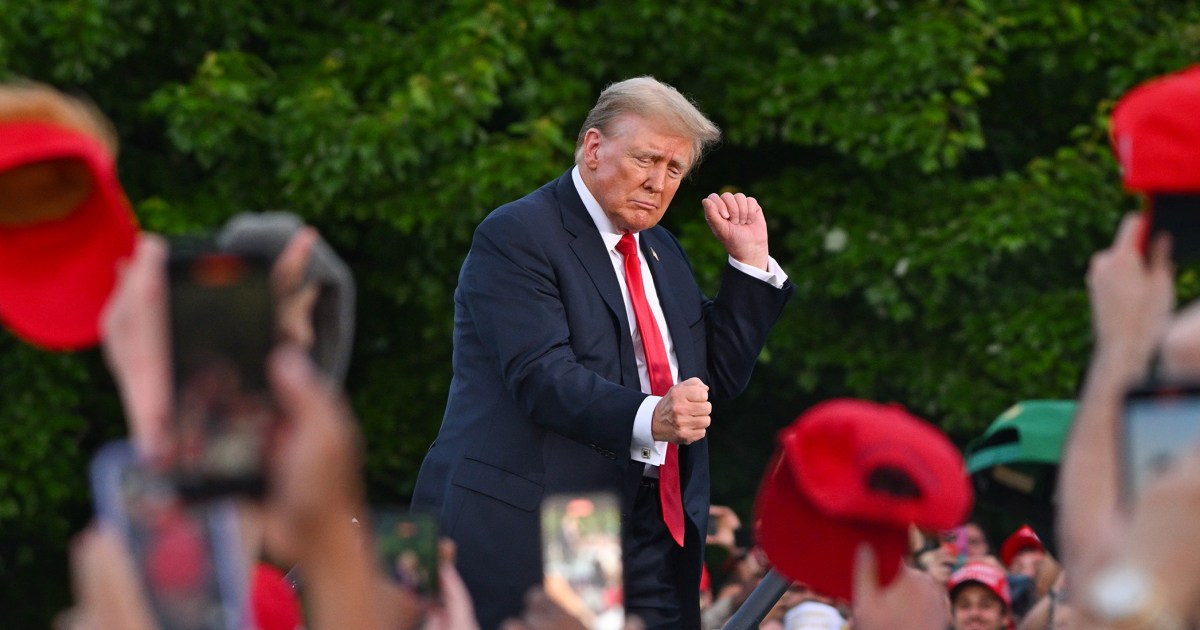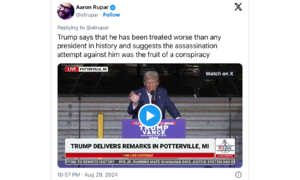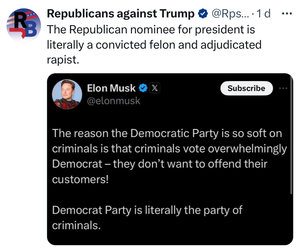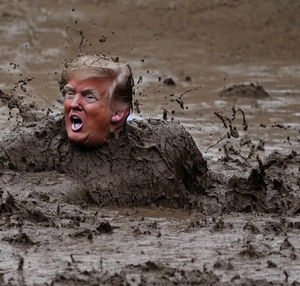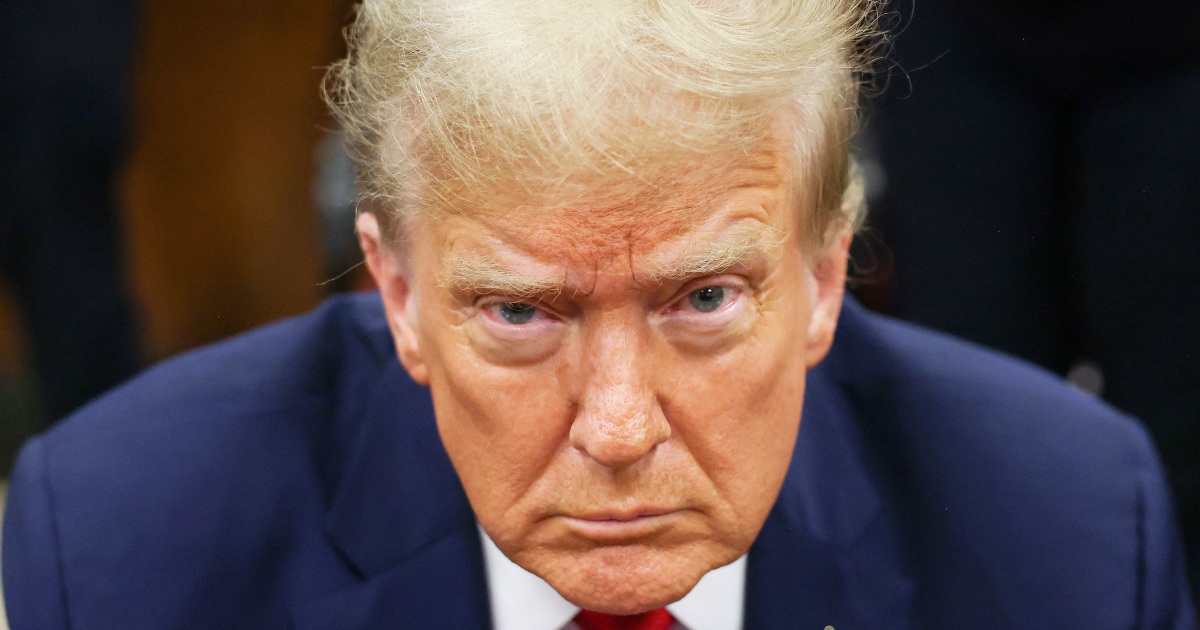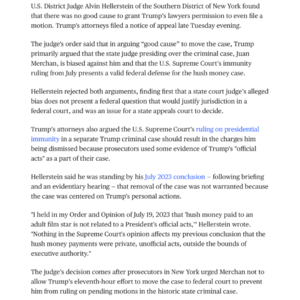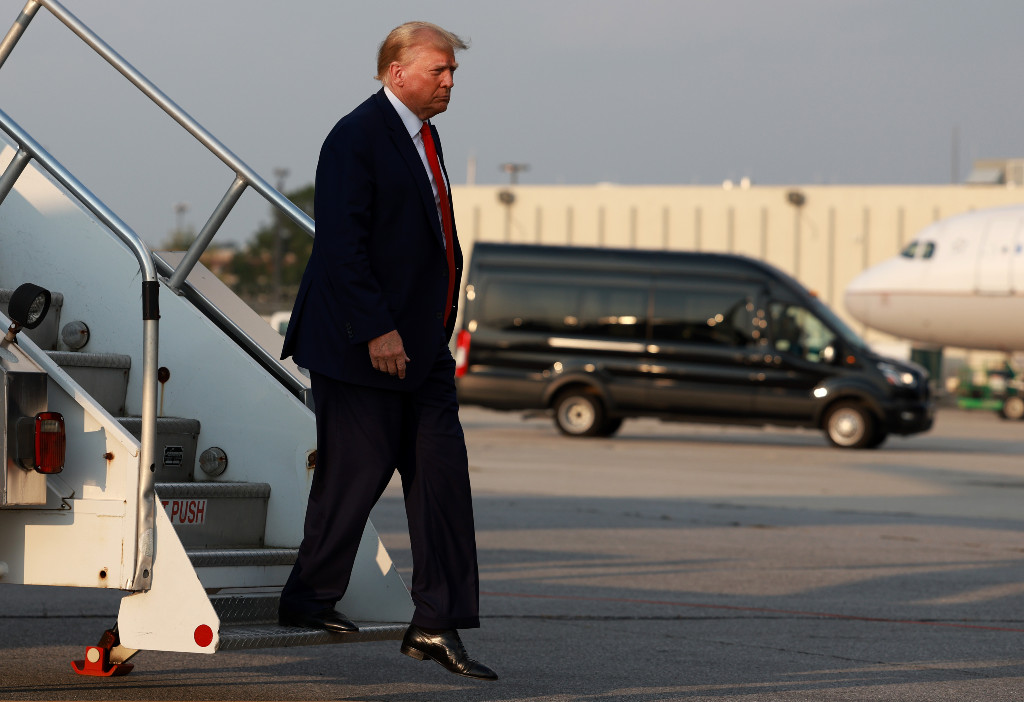Min internettleverandør sperrer dette nettstedet:
Kan en av dere være så vennlig å legge teksten inn i tråden?
Kamala Harris is succeeding in accomplishing something none of Donald Trump’s adversaries have since 2016: Turning off his political oxygen supply by refusing to engage with his manufactured spectacles of insults and taunts, or with the often wholly substance-free issues that preoccupy the press.
As last Thursday’s CNN interview of Harris and her running mate Tim Walz made clear, she’s resolutely unwilling to let the press — or Trump himself — set the agenda for her presidential campaign. In the process, she’s managed to blunt the tools Trump has repeatedly used to undermine his opponents: drawing them into responding to his schoolyard slights, and turning the media’s pursuit of purportedly “legitimate” questions about his opponents — many of them formulated by GOP partisans — into political weapons.
Harris’s refusal to engage with Trump on his terms represents a break from how Democrats traditionally have dealt with him. In related news, her favorables
continue to rise while an obviously flustered Trump flails at ghosts and searches in vain for a smear campaign that will allow him to regain the initiative.
Leaving Trump alone in the mud
For years now, Trump has made an art of luring his opponents to wrestle with him in the mud of his racist and misogynist insults and attacks. As a result, Trump has been able to neutralize the impact of (and sometimes even benefit from) his own vile activities and attributes.
For example, before an October 2016 debate with Hillary Clinton, Trump responded to the then-recent disclosure of the
Access Hollywood tape — in which he bragged about sexually assaulting women — by appearing with
several women who had accused Bill Clinton of sexual misconduct. The stunt was arguably as nauseatingly misogynistic as the tape itself given that it was a transparent attempt to shame Hillary Clinton and taint her with her husband’s alleged sins.
But it turned out to be an effective preamble to the debate itself, during which Trump
loomed over Secretary Clinton like the predator the tape showed him to be and unleashed a barrage of insults. This approach likely enhanced Trump’s sway over some the of the white, male voters who allowed him to prevail in several swing states during the November 2016 election.
Years later, Harris is well aware of how engaging with Trump’s most reprehensible maneuvers and taunts poses the danger of sinking herself into the mud with him, and even allowing him to gain political benefits from what should be massive political missteps — such as Trump’s claim that Harris recently “
happened to turn Black.” And Harris, almost alone among Trump’s many political opponents, has come up with an effective strategy for responding to Trump’s gutter politics game: ignoring it.
Perhaps the most significant moment in last week’s CNN interview was when Harris brushed off a question from interviewer Dana Bash.
When Bash asked Harris to comment on Trump’s contention that she “happened to turn Black recently for political purposes, questioning a core part of [her] identity,” Bash perhaps expected that Harris would — like many of Trump’s previous opponents — respond with an entirely legitimate expression of anger and a righteous rebuke.
But instead, Harris simply shut down the line of questioning by responding, “Same old tired playbook. Next question, please.” When a plaintive Bash asked, “That’s it?“ Harris replied, “That’s it.” (Watch below.)
Bash might have been disappointed that Harris refused to set off a round of headlines by loudly attacking Trump, but Trump himself paid a far higher price as a result of Harris’s refusal to engage.
Trump has long relied on tempting his adversaries to respond to his insults and bigoted taunts. That is how he has, for years, maintained control of the news cycle and made himself the perpetual center of attention. Harris’s curt dismissal of Trump’s most recent round of racism as a tired replay of a stale show marginalized him more effectively than most any of his adversaries, Republican or Democratic, have ever accomplished.
When a showman like Trump is no longer the center of attention, he turns into that most pathetic of Hollywood creatures: a has-been. With her “that’s it” declaration, Harris left Trump standing alone in the pit, covered in mud, with nobody to wrestle.
https://www.publicnotice.co/p/kamala-harris-campaign-of-joy-trump-carnage
Harris is no longer playing by the rules
Harris is also reconfiguring journalists’ relationship with her as a candidate in a way that’s frustrating many members of the press while also creating serious hurdles for Trump.
For over a decade, nearly every non-Trump candidate has played by the same rules in their interactions with the press. The first rule was the presumption that members of the “fourth estate” posed important and “tough questions” because the voting public needed answers to them. The second is that any politician who refused to fully engage with and answer the press’s questions was acting dishonorably and likely had something to hide.
But what those rules didn’t take into account is a reality that’s only grown more apparent in recent years — that the press often asks insipid questions, and indeed can easily be manipulated to serve as conduits for entirely bogus claims and theories pushed by GOP partisans.
This phenomenon was exemplified during the 2016 campaign — specifically, the press’s nearly two year long pursuit of the Hillary Clinton email “scandals.”
From the outset of the primary campaign in 2015, Clinton accepted the proposition that the email imbroglio, initially ginned up by right-wing partisans in the House, had to be addressed by providing the press with the “facts.” This was exemplified in a
September 2015 Meet the Press interview in which HRC allowed NBC’s Chuck Todd to spend virtually the entire segment deposing her about the intricacies of her IT record keeping. Todd greeted every factually accurate response from Clinton with skepticism and further questions.
Clinton learned too late that answering the press’s “legitimate” questions made her more, not less, vulnerable. Once the proposition that there was a “scandal” had been legitimized, it was inevitable that Clinton would be placed on the defensive for the entire campaign. This situation was relentlessly exploited by Trump, who inevitably lied or otherwise obfuscated when presented with questions about his own shady conduct.
Years into the Trump era, Harris has, by contrast, learned valuable lessons about the danger of playing by the press’s rules and thereby allowing journalists’ purportedly “legitimate” questions to become a focus of her campaign.
During the initial weeks of Harris’s presidential campaign, members of the press joined the Trump campaign in fulminating over her delay in making herself available for a “tough” interview. Harris met those press demands with a firm (and as soon became clear astute) response: not now.
Harris instead spent those crucial initial weeks introducing herself to voters on her own terms without the filter of journalists operating under the guise of “hard hitting” questions, many whose origins could be traced back to GOP opposition research memoranda, including the bogus “stolen valor” assertions against Walz.
By the time Harris gave her first campaign interview to CNN, the event’s significance had been blunted from the outset, since voters’ views of Harris had already begun to be established, largely positively.
Bash had clearly hoped to focus the interview on an interrogation of Harris’s so-called policy “flip flops” on matters including fracking, which had been the subject of a raft of front page news “analyses.” Going after “flip flops” was, not coincidentally, a key part of the playbook the press relentlessly ran against Hillary Clinton.
For instance, during the aforementioned 2015 Meet the Press interview, after asserting that Hillary Clinton faced a “trust deficit,” Chuck Todd illustrated purported HRC “flip flops” by playing a series of clips captioned “Clinton vs. Clinton.” He suggested Clinton’s support for marriage equality was the product of political expediency — despite the fact that she was a leading advocate for LGBTQ rights during the Obama administration — and that her decision to oppose the Iraq War after she learned that Bush had lied about weapons of mass destruction was, similarly, evidence of untrustworthiness.
It was a transparent “gotcha” maneuver designed to place Clinton in a position where any response would make her look hypocritical. Clinton, however, treated Todd’s questions as legitimate and attempted to systematically explain her reasons for each changed position, thereby feeding the claim that she was a sharp operator rather than reasoned and non-dogmatic.
Trump, for his part, refused even to engage with (accurate) claims that he had changed his own mind about the Iraq War, most notoriously by contending that he had always opposed it despite
a public record to the contrary. He’s now doing much the same, even more audaciously, on the subject of abortion rights.
Once again, Clinton paid a huge price for playing by the rules, while Trump did not.
As last week’s CNN interview demonstrated, Harris has learned from Clinton’s experiences. Instead of accepting Bash’s framing and “admitting” that she had “flip-flopped,” Harris stated repeatedly that her “values have not changed.” Indeed, as Harris asserted, her willingness to alter her positions on certain matters when presented with new evidence and new realities demonstrates a consistent adherence to her “values,” not a willingness to compromise them.
The result? Bash’s line of questioning lost its punch for much the same reason that her effort to bait Harris to engage with Trump’s racist taunts failed: because Harris has refused to play by the tired old rules.
It’s hardly a coincidence that over the past several weeks, the power of the press to impact the tenor and focus of the presidential campaign — and the power of Trump to do the same — has been suddenly thrown into question. By refusing to engage with Trump’s taunts or play by journalists’ rules, Harris has upended presumptions about politics that have dominated during most of the past decade. And that’s a good thing.
Thanks for reading Public Notice! This post is public so feel free to share it.
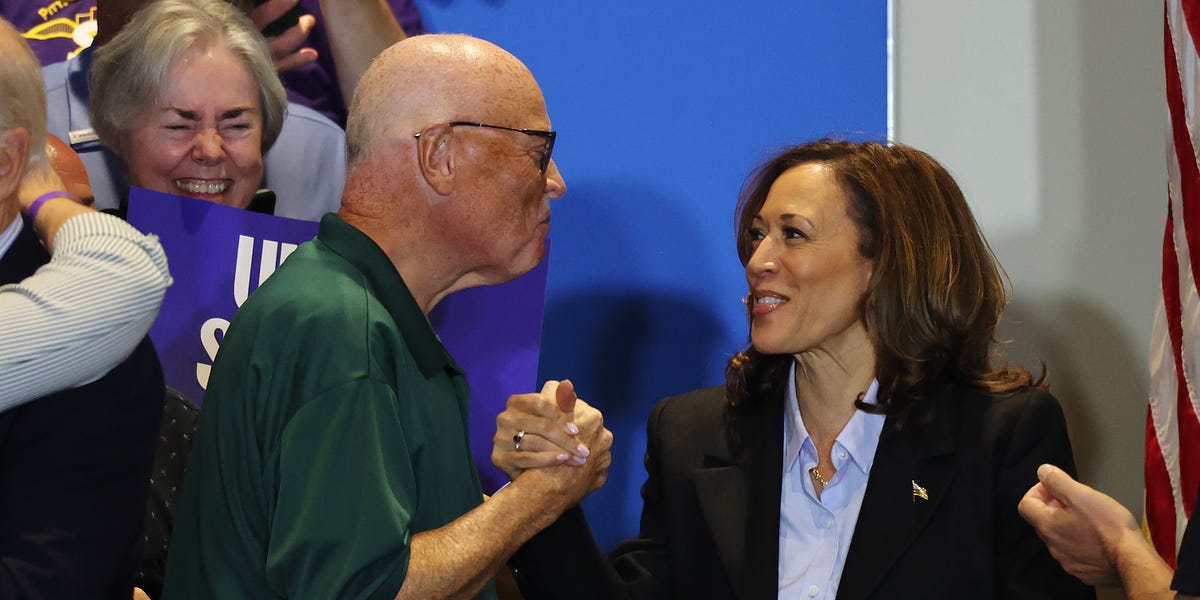
 www.publicnotice.co
www.publicnotice.co





